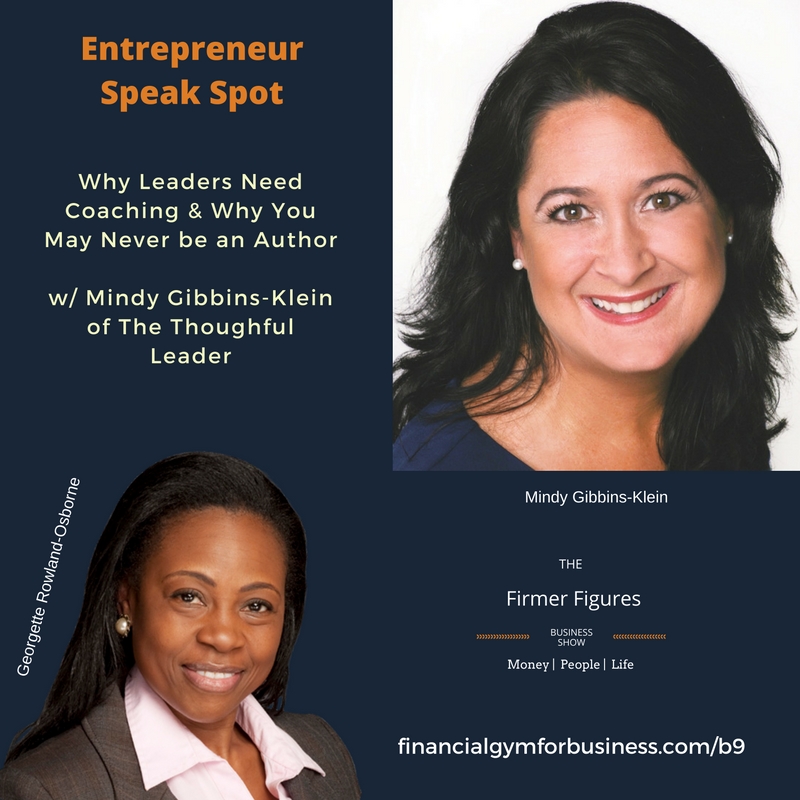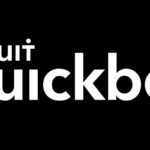
Quick confession, this was meant to be a podcast episode. However the quality of the audio was not clean enough and my guest is a classy lady, so we would have done her an injustice.
While you don’t get to actually hear how warm and funny she is; what you will get are her thought provoking ideas and opinions.
Mindy Gibbons Klein is founder and director of 3 businesses, Real Thought Leaders, The Book Midwife and Panoma Press Business Publishing.
She is a highly sought after speaker to executive audiences and she develops and presents workshops and training programmes to top business leaders. She’s spoken to thousands of people in many countries and has an enviable list of private consultancy clients who use her services to develop their thought leadership strategy, and also to plan write and publish books and articles that raise their profiles as real thought leaders.
Mindy has written and been interviewed for articles for radio and television over 100 times and is the author and co-author of 8 books, including best seller 24 Carat Bold, which is a must read. Seth Godin himself called it practical and inspiring. Her latest book, The Thought Leader takes the concept of thought leadership to a whole new level. Now I consider this lady one of the first people I truly considered a mentor when I took the step from being in the corporate world to working for myself. Not just because she is a thought leader in her own right, but the work she does in helping others to step into a thought leader or influencer role.
It is my pleasure to introduce Mindy Gibbons Klein.
Georgette: You said that you’ve just come back from an exercise. Is that part of your morning routine?
Mindy: I try to exercise a few times a week.
G: So Mindy, before we dive in to your wealth of knowledge, I’m going to ask you a few trivia questions so that the audience can get to know you, Mindy, the woman; and find out just a little bit more about what you like and what makes you tick.
So the first question is: What type of car are you? Sports car? Executive saloon? Or a 4×4?
M: I have an executive saloon.
G: Without sending you into therapy, if you had one, what was your nickname growing up?
M: Mindles. It turned into Spindles so people used to call me Spin, which is quite accurate as I am a bit of a spin doctor.
G: You could be a rapper with that nickname. Next, dead or alive, which two people would you most love to meet if you could?
M: Albert Einstein and my mum, who I have already met.
G: Not including Richard Branson, who do you admire in the business world right now?
M: Karren Brady. I really admire her.
G: Before we dive into your work as an influencer and helping people become an influencer, did you ever have a life in the world of work before you went out on your own?
M: Oh yes. Certain things I don’t miss at all.
G: How did you transition?
M: I literally finished a job, and then toyed around with finding another job. I knew what I wasn’t really willing to do. I used to travel but I had little kids, 4 and 5 years old. I finally said right, that’s it, I don’t want one of those jobs so I started with a bit of a plan but a lot of enthusiasm.
G: So how did you act upon it? There are people who plan first. Perhaps, build up 6 or 7 months’ worth of money. While others dive straight in because they are convinced it is what they have to do and the sooner the better. Which one are you?
M: I jumped right in. I had a cushion because I got a few redundancy payments. I managed to keep them safe in a bank account. So I did not feel that I had to build things up. In hindsight, I didn’t feel that sense of urgency to burn the boats as they say. I kind of just started. I was a bit burnt out actually from the corporate world. I gave myself a break and I had time with the family.
G: You have 3 separate businesses. What do they look like?
M: They all work together and I run multiple businesses. The first business that I started 14 years ago was the Book Midwife brand that a lot of people know. I started as a book coach helping people develop ideas and their message, and to get finished with their books. We still do that with other coaches. We also have programmes and private coaching, to take stuff out of your head and into a manuscript that’s ready. That’s going fine.
After about 3 or 4 years, I started a publishing company with Book Midwife graduates. They were always getting published but it was taking too long; or they were going to get published but didn’t do it right, or publishers just ripped them off. It was started with some great intentions and a lot of caring. Happily running the book coaching company and the publishing company do fit together.
G: And now you have your thought leadership coaching and programmes. Are they only for individuals?
M: We do corporate work, and leadership development now in areas other than books. I’ll just give you an idea. Leadership usually has everything to do with strategy, your positioning, and your confidence as a leader. When an individual or an executive wants to go forward and do strategy; and they actually want to write and publish. After they do their great work at the Book Midwife, we can bring in the other companies.
G: Who along the way would you consider a coach to you, who do you look up to?
M: I had a lot of managers and leaders. Throughout my career I had quite a few people who believed in me and it’s really lovely when up and coming leaders push you forward. It’s so important because there is enough room for everyone. The best mentor/coach that I ever had was Mr. Anthony Robbins, (Tony Robbins). I’d been listening to his tapes since 2004. I became a senior leader with them and then volunteered my time as a thank you, as they did so much for me. I learnt so much from Tony that has built the foundations, in fact everything that my business and I am now.
G: He’s responsible for improving so many careers and lives.
M: He really is amazing and I just feel really blessed to have him in our time
G: Let’s go back to having a book. To be a thought leader, it is said that while we can create content, intellectual property, build businesses, call ourselves influencer or expert; the way to really do it is to have a book. But for many, me included, a book was such a reach. I was not only hampered by my own self-doubts, but also not understanding the practical steps to get a book out.
I remember sitting in one of your the sessions for a day. I didn’t truly know what I was doing at first, but I followed your process. A few days later when I decided to tackle it again, I realised the book was more or less written. I went from no clue to having a workable manuscript. I didn’t do any more just looked at the Mindy Maps you taught us to create and there it was.
So Mindy, if someone came to you, from a standing start, believing it was impossible to become an author, what would be your approach or advice?
M: Whether is a private one to one client or a group, every programme starts the same way. There is a half a day inspiration session and it is pretty powerful. I don’t have to say so myself, because people like you make all the difference.
People sometimes don’t understand the metaphor of the Book Midwife. They think it is about the end where you know you’ve carried the baby for 9 months and then it is all about the publishing. What I meant but I chose the wrong name, was pulling the idea out right from the beginning when it’s still just an idea
G: The conception or inspiration.
M: Thank you for that, because the inspirations section, that is where the sparks fly
And also it’s really important having the confidence, helping people who feel like imposters of some kind. Can I actually do this? Will anyone care? Will anyone like it? Etc. Dealing with all of the negativity. Also people are too busy to focus on a plan, and following through with it.
Just the other day I got a call from someone who said “I am not making progress on my book”. Now this person I’ve been speaking to for years. I see them every few months, and I don’t mention it. But they see me and feel that they need to go to confession. They end up saying they’re still working on their book.
Within 90 days we could have had it all done to a really high standard. This person said to me I’m going to work with you when I get the fee. It’s £1500. But the fee is not the issue.
That’s not a huge investment to get you started in the right way. Unless people understand the value, £1500 or even £100 won’t make a difference. Georgette, you’re a finance lady. You know it’s all about the value, the perceived value. I can tell you that we have put thousands of people through that programme, not just the private clients, but including the groups.
People start their book and so what do we do? We look at the big picture. Because of my businesses, we’re able to do a whole lot more. Some people say I want to write a book, but they don’t want to be a thought leader. Others want to write down a story, or somebody talking, they don’t want to become a speaker. They just want to be proud of the fact they’ve got a book in print. We call those the life story books and they’re just as rewarding. And when their book comes out a few months later, they’re an author!
G: It’s funny you say that. I had never looked at a book in that way. I was able to picture the faces of my readers. Finally I knew why I needed to get it out. Why and for whom. And that is how that book got written. You kept stressing that to avoid going off track we should simply refer back to what is the main thing we want them to know?. And I would go back to that and it would just write itself.
G: In your experience as a thought leader, what differentiates people who take action from those that don’t? I know you have strong views on this
M: Georgette. I put on my workshops with absolutely everything. People get all excited and say “I’m inspired, I’m going to do it”; but they don’t. Here’s the thing, many people start out with great intentions, but unless you have somebody holding your hand, it’s very, very, very unlikely that you’ll do it quickly or do it at all. We get people who have spent about 2 years or more and they’re not sure about what they’ve written. They say would you read it and tell me if it’s any good. I won’t read it and I won’t use that phrase. What sort of objective is that? I can’t.
G: I can’t remember the exact figures so I’m going to make this up completely just to illustrate a point. It was said at a business workshop I attended that out of every group of 100 who pledged they were going to write a book, only a fraction even managed to get something to a point where it could be published. The number was very small.
M: But that’s people who actually started
G: Really! That can’t be true.
M: It is true. If you’re a listener and you’re listening to me right now; you might risk never doing it, never finishing. Or you’re not sure about how to get published. There are a number of ways to do that. The private coaching that I’m so adamant about; we have 100% success on the private course. Why, because we’re holding somebody’s hand all the way. In a group setting, it’s less possible, isn’t it? I feel very, very strongly in that, that’s the way to go. I’ve just had my personal trainer this morning because guess what, I don’t go to the gym.
G: There you go, you are spot on. I have the best of intentions around fitness. I’ve even been known to have the gym clothes at the side of the bed ready for when I get up in the morning. I wake up, and then step over them. That direct accountability is invaluable.
M: You know I’m always happy to have a chat with people. I’m one of the most accessible coaches and people out there because I’ll chat and I’ll want someone to have a thorough understanding before they make a decision. There’s lots of ways to get your book done.
I’m a bit biased; I think private coaching is what we’re known for. If people say I’m expensive then you know, what I’ve done my job. I drive a Lexus. It is expensive compared to other cars. Is that an investment I wanted to make? Absolutely. And if someone is not willing to invest in a book to represent their best, then perhaps they’re not my client.
G: I love the phrase “what someone can afford is none of your business” People will find the money for what is important to them.
M: You know there’s always a way. We’re not talking finance but I’ve had people liquidate ISAs to get their best book done. I’ve had people use credit cards, rearrange financing.
M: I’m not the most expensive in the world. There are eye-watering figures coming out of the US. US clients love what we do now because of the dollar. In the UK it’s just the same as ever, very high quality and that’s what we do.
G: As an entrepreneur what setbacks have you looked back at and you thought “I really shouldn’t have done that? What sticks in your mind as something that makes you wince when you think about it?
M: The thing that I still find about myself. I’m accessible, I’m nice, but I’m too soft. I used to allow people to go on for too long without meeting expectations. I Continued to providing services that cost us money. Under the umbrella of Mindy being too soft, I moved away from New York. I think I moved away because I couldn’t fit in to that hard-nosed way of doing business. That’s not just me. People on my team and my advisers were telling me to be stricter about things. I’m just blessed with a lot of energy, and people see my energy. I probably was hyperactive as a child, it’s ADHD now. I talk fast and think fast.
G: And how do you think you’re different today, as a woman, since you started out on your journey?
M: As a female, we’re in a good position, we’re allowed to talk and express emotions. Everybody is, but we were allowed to. I worked with a healer, several in fact. Very simply, I worked to become more loving towards myself. You need to get a message very deeply. I’m very clear about what we do in the businesses for every client and every supplier. But now I feel very grounded, that’s the best way I can describe it.
G: How do you deal with emotional vampires or toxic people?
M: They’re not toxic people. I think it’s really important we’re clear. If you’re saying someone’s toxic that is a permanent state. So the word I would use is unresourceful, so they’re acting in an unresourceful way.
G: I hadn’t thought of it like that.
M: It’s a big ask to dig deep, to find resources and use them well.
G: Also people have behavioural patterns which are difficult to overcome by yourself.
Mindy, before I let you go, what are you looking forward to doing in the future? I know you have your latest book The Thoughtful Leader
M: The businesses are blending more and more. The Thoughtful Leader has enabled me to bridge what I do in business and my philosophy in life. Things are always moving on and evolving. I’m very proud of the last book, the latest. It’s for the entrepreneur who feels a bit beaten up. It views things from my model of the world. It allows people to choose to think about how they act especially in business. How executive leaders can choose to be more thoughtful about their content. Of course I still had to bring it back to content because there’s the value.
By writing and speaking you express yourself. You can think things but they don’t exist in the real world before you write anything. You just take a more strategic, a more thoughtful approach.
At the very end of the book we go through the word thoughtful and my beliefs that people can choose and learn to care. When they are in an unresourceful state from themselves or they are blaming others, they have forgotten how to choose. So that’s what I’m really doing nowadays on the thoughtful leader sessions on this and people respond.
So you’ll notice it’s nothing to do with writing although if you’re in business, it’s going to result in better books, better articles, but mostly a better you. And then I get to travel around the world doing this stuff. Life is looking up at the moment.
G: Not only that, the book is doing really well.
M: It is WH Smith business book of the month in September so we’re hoping that a lot of people learn from the book and that will take us to the next one who knows. It will be double digits one day but …
G: If you can’t Mindy, there’s no hope for the rest of us.
G: Thank you so much. I’ve had an education, a very thoughtful one in fact; I knew it would be. People are struggling not just with writing a book, but with how to position themselves in business. What you are saying is that seeking out expertise and accountability is not something to be afraid of. It is a sign of an action taker. Even thought leaders need thought leaders. You are certainly one of mine.
Thank you for your time today Mindy, I enjoyed it.
M: I enjoyed it just as much and thank you for inviting me to be a guest.
Guest Links
The Thought Leader Book
24 Carat Bold Book
Show Links & Resources





